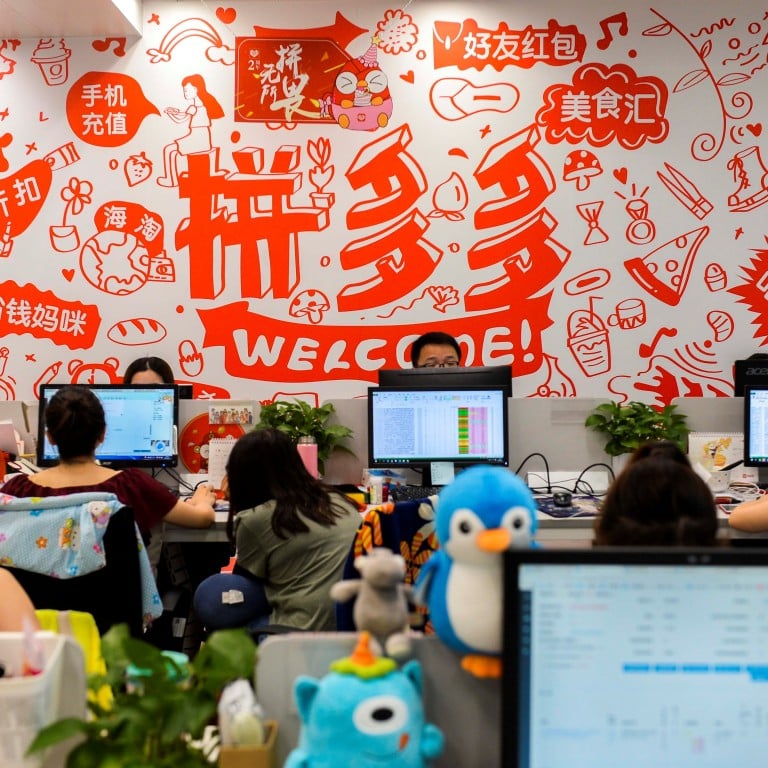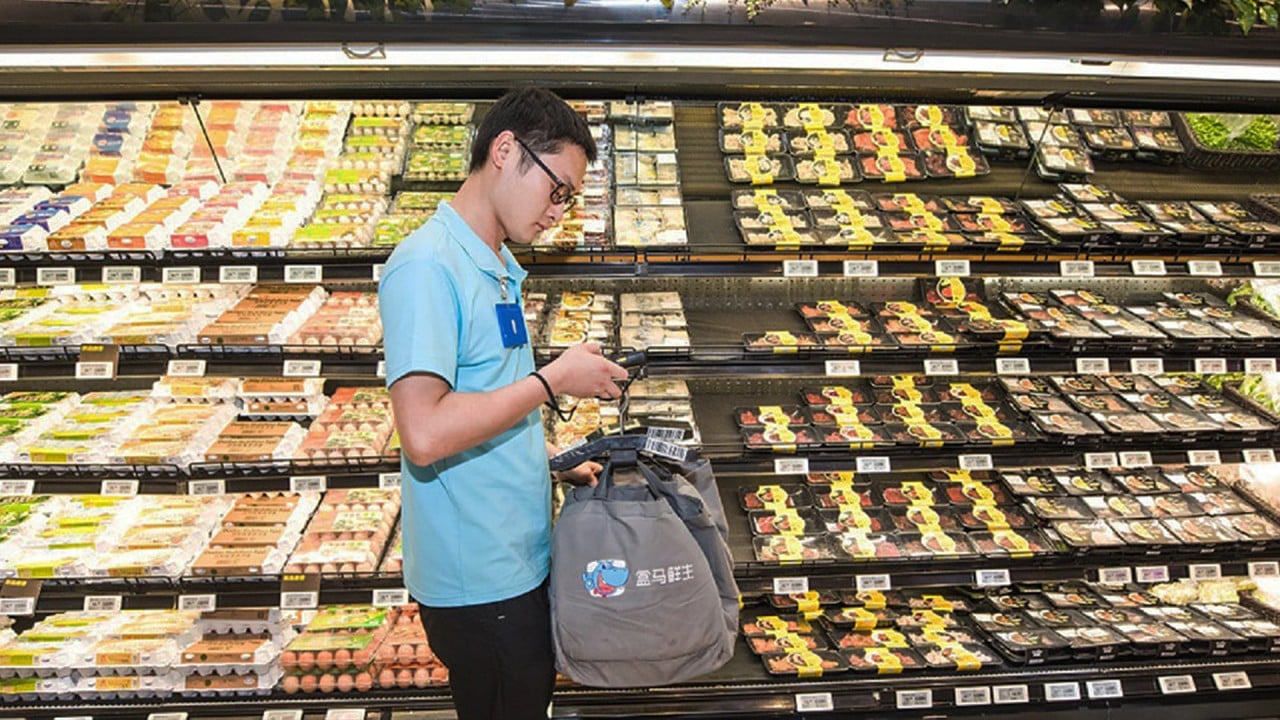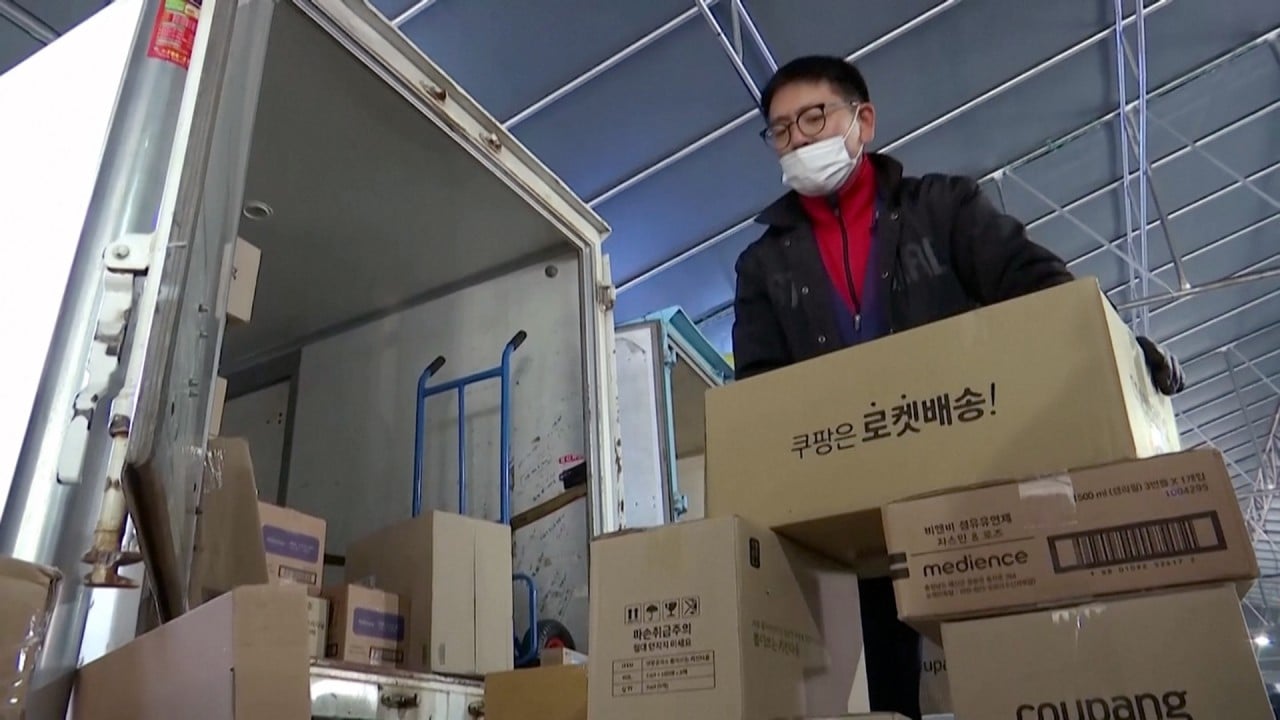
Pinduoduo worker deaths reignite debate on 996 and the dark side of China tech’s overwork culture
- Pinduoduo confirmed the deaths of two young workers recently, sparking debate over a culture of overworking in China’s tech companies
- A ‘996’ work schedule of 12 hours a day, six days a week has become an unwritten standard for many of the country’s tech firms
Pinduoduo had not responded to the Post’s queries about its work culture as of publication time.
The string of cases has sparked a public relations crisis for Pinduoduo, which is one of the fastest-growing e-commerce companies in China.
Video by ex-PDD employee alleging poor working conditions goes viral
But it is not the only company accused of overworking employees. The culture of 996, which refers to working 12 hours a day, six days a week, has become an unwritten standard for many of the country’s tech firms.
The 996.ICU campaign has led Chinese state media to criticise such labour rights violations, but little has changed in the past two years.

01:37
E-commerce companies in China offer temporary jobs to thousands amid coronavirus outbreak
Shanghai-based Pinduoduo’s share price on the Nasdaq has more than quadrupled from under US$40 per share to US$180 in the last 12 months – making its 40-year-old founder, Colin Huang Zheng, the second-richest person in China. But for many Chinese commentators and analysts, businesses like Pinduoduo have gone too far in pushing their employees in pursuit of success.
“[996] isn’t getting better. To some extent, it’s getting even worse,” said Zhang Xiaorong, director at think tank Beijing Cutting-Edge Technology Research Institute. “The pandemic in 2020 has created an even stiffer job market. And being in a weaker position in the job market, employees sometimes have to give in.”
“Winners take all, big fish eat small fish, fast fish eat slow fish … this type of fierce competition has caused countless workers to pay a huge physical and mental price,” said Yang Guoqing, a lecturer at the Centre of Modern Human Resources Assessment, which is part of the Chinese Communist Party’s Shanghai Party Institute.
Experience the damaging reality of China’s 996 work culture in a new game
Yang said tech firms are popular with young Chinese employees as salaries are generally higher than those in the manufacturing and services sectors.
But this often means workers in the industry have to work extra long hours to prove their value to employers.
Kuaishou, ByteDance and Huawei did not immediately respond to the Post’s requests for comment.
“Everyone is working 996,” said Beijing Cutting-Edge’s Zhang. “If you don’t, you are falling behind.”
Follow China’s “996” work hours and you’ll end up in an ICU, says Chinese developer
Technically, 996 is a violation of China’s labour law which stipulates that employees should work no more than eight hours a day and 44 hours per week. Overtime should not exceed 36 hours a month, according to the law.
However, China’s labour authority has not punished any Big Tech firm for encouraging or forcing its employees to work extra long hours.
Workers also often do not get properly compensated for the overtime work they do. In a survey by online recruitment platform Zhilian Zhaopin in 2019, over 70 per cent of 10,000 respondents said they had gone unpaid for overtime work.
“Although workers have the right to request employers to pay overtime wages, it is still very difficult for workers to provide evidence,” said Lawrence Yang, a Beijing-based lawyer. “Employees usually dare not claim overtime wages from the companies until they decide to quit their jobs.”
The lawyer said it is common for employers to implement the 996 schedule as an unwritten rule, or even make it a part of the corporate culture, making it easier to circumvent the labour law.
Ele.me hit by online backlash after delivery worker’s death
“If you join Alibaba, you should get ready to work 12 hours a day, otherwise why do you come to Alibaba? We do not need those who comfortably work eight hours,” he wrote.
Alibaba owns the South China Morning Post.
JD.com founder Richard Liu has also attributed the e-commerce giant’s success to his early endurance of long hours of work, and in a WeChat post in 2019 said those who slack off in his company were “not my brothers”.
A former employee at Pinduoduo, who declined to be named, said her official work schedule at Pinduoduo was from 11am to 8pm including two hours of breaks for lunch and dinner. But in reality, most workers stayed in the office until midnight and weekend duties were common.
“Some of them worked late because of the heavy workload, others due to peer pressure,” she said.

03:44
Deaths of South Korean couriers blamed on overwork during pandemic delivery boom
According to a 2020 report recently released by recruiting platform Maimai, the internet industry scored the lowest on employee happiness levels, but new recruits were still flocking to tech jobs due to attractive salaries.
For example, workers may hide in toilets for hours watching short videos on TikTok, or secretly read online novels on their work desktops.
To discourage employees from “touching fish”, Kuaishou has installed timers in restrooms to keep track of the time employees spend inside, while Pinduoduo has a sign in front of their restrooms: “don’t bring your mobile phone to the toilet”.
‘Touching fish’: young employees rebel against Chinese work ethic
“If you don’t finish your project in hand, your performance review will suffer, along with your salary,” Zoey Zou said.
And Angela Zhang, an associate professor of law at the University of Hong Kong, said spotty enforcement by local governments could be a major obstacle to changing the overwork culture.
“Although the central government might call for better working conditions for workers in the tech sector, it is the local governments that are in charge of enforcing the relevant labour rules,” she said. “So I am not optimistic that the [Pinduoduo] tragedy will fundamentally change the working conditions in the tech sector. It might lead to temporary improvement, but such effects might be short-lived.”
Additional reporting by Coco Feng and Celia Chen.
If you are having suicidal thoughts, or you know someone who is, help is available. For Hong Kong, dial +852 2896 0000 for The Samaritans or +852 2382 0000 for Suicide Prevention Services. In the US, call The National Suicide Prevention Lifeline on +1 800 273 8255. For a list of other nations’ helplines, see this page.

